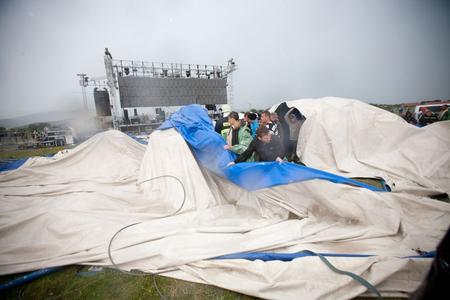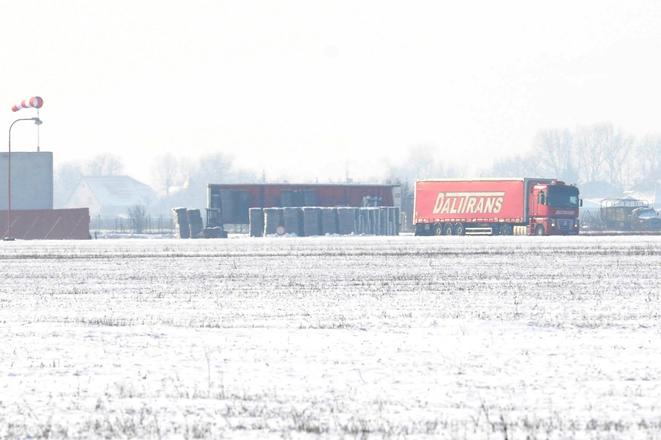The storm on July 18th, 2009 at the Pohoda music festival at Trenčín airport claimed two lives, one a young man from Piešťany and of a young woman from Omšenie who died later, in hospital. In total, up to 300 people were endangered by the tent, with nine injured seriously and four moderately seriously. 65 visitors suffered lighter injuries.
After almost nine years, a sole judge of the District Court in Trenčín ruled on March 9 that that the German company is to be blamed. It also ordered it to pay €33,190 to the organisers – the whole amount requested, the Pravda daily wrote.
What happened at Pohoda

The tent fell mid-concert on hundreds of people, during high winds and a storm. The contract between the organisers and the tent supplier did not specify whether the tent should have the sides down, or be open with only the roof in place. The tent did in fact have its sides open, and this may have contributed to the tragedy.
The German company argued that the organisers ignored the warnings of the Slovak Hydrometeorological Institute concerning strong winds – which reached the intensity of the 9th grade on the Richter scale, while the tent was only designed to withstand grade 8. Moreover, the German company failed to secure a person on the site responsible for oversight and proper use of the tent. The construction was partially open and should never have been used in that state.
Conflicting expert opinions, avoiding court
The protracted court case was complicated by different and often conflicting expertise. The tent was designed to be used fully closed, especially in bad weather conditions but at Pohoda it was partially open. The court had to decide who was responsible for the inappropriate use of the tent, and thus for the accident.

There was already a first failed agreement in 2009, then a verdict in 2012, but the German side appealed. The owner of the tent, Jakel Bossert, avoided court proceedings and later had to be led into court under escort.
The most recent verdict in this case is not yet effective and can be appealed within 15 days, according to Pravda.


 Parts of the tent which fell on visitors are taken away from Trenčín airport, venue of Pohoda festival. (source: TASR)
Parts of the tent which fell on visitors are taken away from Trenčín airport, venue of Pohoda festival. (source: TASR)